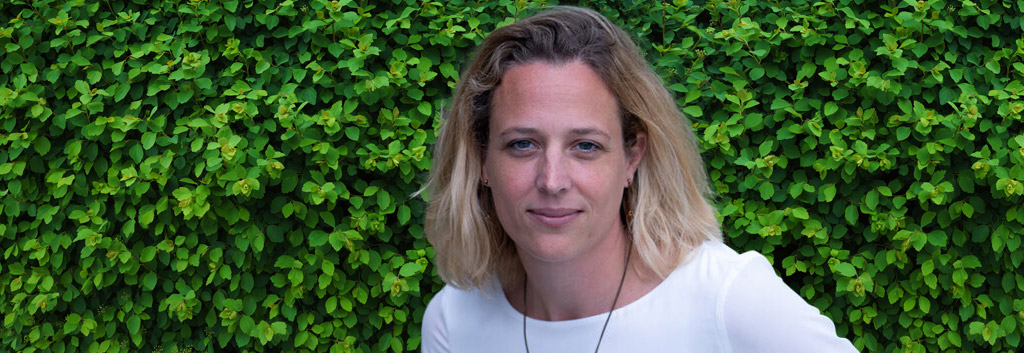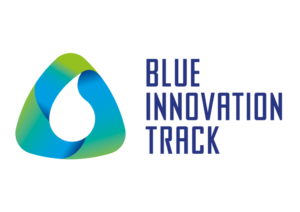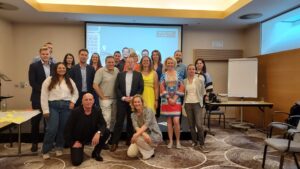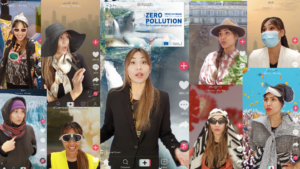Meet Naomi Timmer, the director of H2O People and Founder/Director of the European Junior Water Programme. An energetic and positive person, Naomi likes to connect different initiatives and people, in working for a better world with more smiles. Naomi shared her motivations and thoughts on EJWP in today’s environment.
‘I value human development and human rights in all my roles to create something that contributes to the challenges of our societies. It drives me in what I do to see people happy because they are getting the most out of themselves, and then us working together to make this a better place for all of us. Ending up in the water sector was actually a bit of a surprise. Being in water, I want to make my contributions on these positive things where I can. Some negative things in the world are distrust among ourselves, and beliefs in a system that may no longer be working. I see people in different sectors sticking to old habits just because they ‘are there’. We sometimes need to take a leap of faith to learn new ways of working together better.
I began EJWP as an integrated holistic development programme for young professionals in the water sector – working together on a European framework for collaboration, instead of old fragmented elements. I think we are creating a new European-based community of water professionals who want to empower the water sector to create a new positive path forward.
It is becoming more crucial than ever to work in collaborative roles to face the bigger and scarier problems of the earth and water. Before the kick-off of EJWP, I was working for a national water training program. As I have a background in political science and religious studies, I specialized myself in complex human behaviour and communities. I’ve seen before where there was no real community and common culture of working on our water challenges. We need a shared narrative. In professional development, attention to the human factor in working is key to a sustainable contribution by organizations. It’s about staying open minded and creative – sharing our different ways of working. We need this as humans and Europeans for all of our future.
We’ve catalysed whole new environments of working together in our first two EJWP groups, and the registration deadline for EJWP 3 is approaching soon on 14 May. I would invite all the water-related organizations to open up in engaging with young professionals – to encourage them and structure business to connect with work that has been done by our organization partners. Our collaboration with the European Commission in the upcoming Green Week 2021 is just one example of EJWP empowering young voices in the sector to be heard at all levels. Joining our community is the most direct way to reach the goals that we all have together.
During EJWP training weeks, I am touched by the reflections of participants on their own work and how they grow into more of what they want to be, from their own ambitions. I’m also really proud of our participants and the community we create together. Even after 1 ½ years of working mostly online during the pandemic, we are all still together, and no one has dropped out. This says something special about our people seeing the added value and what they want to achieve. To be able to connect in these conditions makes me optimistic of our future impact. We all had our doubts about connecting online. There is so much energy and fun that I get from our meetings, and I see how far we can reach. The groups are developing their own leadership styles, and that is how it’s supposed to happen.
Intercultural communication is central to our interactions, just like in the workplace. For example, we expect our own ‘truth’ to be accurate. We realize in the trainings that the perspective of one team member is likely not like their colleague’s from another organization or region. Embracing this functional diversity is something I’d like to highlight even more. Often in collaborative projects, you are thrown into a consortium for more than four years, with little time to understand each other and see what minority wisdom there is in the group to be used. We can reach higher goals if we focus more on (intercultural) understanding and learning.
Our world is getting so complex that solutions will rarely be found in one organization, a single silo of information or person. Complexities are becoming more evident, such as inter-dependencies on climate, digital tech, and changing labour markets. This evolving future requires collaboration with people of different backgrounds. To train people to do this is essential – to stay on top of the transformations that need to happen and to become a driver of impact. I believe that opening up like we do in EJWP helps the young professional, the dynamics of their organization, and the dynamics of the water sector. This leads to creating solutions together for a bigger impact.
EJWP focuses on the development of young people from the different kinds of organizations that are in the value chain of water. By joining them and their organizations, they become more equal in sharing expertise in the program. It’s important to see that the partnership is about the value they can bring to each other, and the common ground they find in the programme, no matter what size organization they come from. They all have their own value to contribute to EJWP and to the water sector. For me, this is the nicest kind of partnership, and how we can get further. I’m looking forward to growing this type of working relationship even more’.






